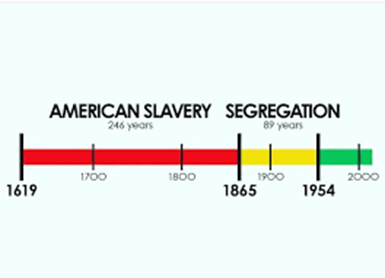Anti-Racism Resources
Here is a list of resources compiled by DTA. This list is not all encompassing, meaning there are still opportunities to learn outside of these resources and opportunities to unpack who you are in relation to recent events. We wanted to share these resources to help get the conversation started. Recent events might have highlighted conversations about inequality, but these conversations have been happening over a long history. It is important to recognize that reading the document is only the first step towards understanding systemic racism in this country and within higher education. Here is how we think you can help. Please read through the entire post:
For Black Lives
- Support Black-owned businesses right here in Lafayette
- Educate yourself on race and anti-black racism (specifically in academia!)
- It’s important to motivate people to have difficult conversations about police brutality and modern injustices with your sphere of influence (e.g., friends, families, coworkers, etc.,)
- To people who say, "It's only a few bad apples," finish the saying, "A few bad apples ruin the bunch," and silence in cases of racism is taking a stand. Cops not policing each other is equally part of the problem as cops killing members of the Black community.
- To people who say, "Protesting is violent,” finish the saying, “being assertive and sharing your message is not violent.” The Black community has been waiting to be seen and heard by policy makers and by justice. Now, the BLM movement is using their platform to mobilize (i.e., protest) to be heard and seen.
- The violence being described in the protest only perpetuates racialized narratives about the Black community.
- We need to be in conversation with ACS and other national organizations to speak out against injustices; we need to support people of color in STEM.
- To people who say, "All lives matter," finish the saying, “Of course all lives matter, but Black lives have been and are currently in danger." BLM is an argument of EQUITY and JUSTICE (see timeline). It's also not the Black community’s job to educate White people about racism. If you need to be educated, you were/are not willfully listening.

- Listen and respond to what BLM is asking. It’s okay to ask the Black community what they need to be supported. Support the Black community (i.e., businesses, musicians, policy makers, employees, etc.) directly not just White allies.
- White ally-ship can sometimes serve as the modern day, "white savior." Fighting systemic racism means acknowledging if you are the "right person" to fill positions of power. If you are not, find and support a person of color who is better for the position. By definition, privilege means you will have access to networks, opportunities, and resources that other people do not have; it's not always because you were actually "right for the part."
For PoC Lives
- Here are some resources that showcase PoC experiences living in the U.S.
- Systematic Racism explained:
- List of Media
- Stay reflective and educated on systemic racism/sexism/ableism/etc. Here are a list of questions that people have been sharing:
- What can you do to support PoC in your community?
- What are your local politicians' policies on ending police brutality?
- When were you taught about race and culture?
- How do you plan on helping the fight to end racial discrimination and systemic oppression?
- How can you use anti-racist knowledge to change and progress conversations with friends, family, colleagues, and peers?
- How can you be actively anti-racist instead of simply "not racist"?
- We need to support ALL intersections of PoC, which include PoCs that are women, indigenous, multi-racial, multi-ethnic, people from the LGBTQ+ community, and persons with (dis)abilities.
- There should be a reciprocal relationship between members from all communities. Support means offering and sharing networks, opportunities, and resources with everyone. Everyone needs to thrive, not just survive higher education.
In accordance with Purdue policies, all persons have equal access to Purdue University’s educational programs, services, and activities, without regard to race, religion, color, sex, age, national origin or ancestry, genetic information, marital status, parental status, sexual orientation, gender identity and expression, disability or status as a veteran. See Purdue’s Nondiscrimination Policy Statement. If you have any questions or concerns regarding these policies, please contact the Office of the Vice President for Ethics and Compliance at vpec@purdue.edu or 765-494-5830.
Last Modified February 28th, 2025